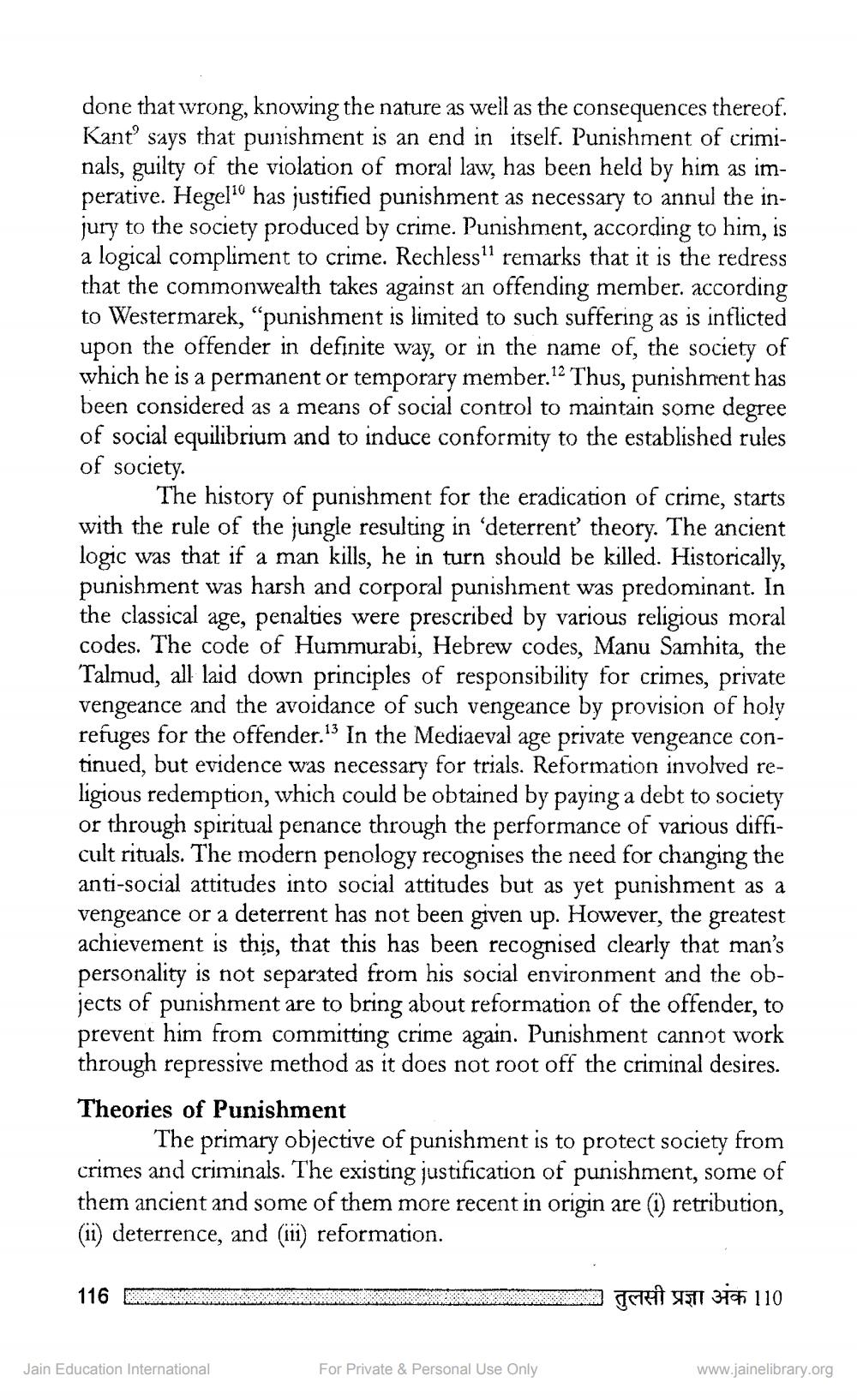________________
done that wrong, knowing the nature as well as the consequences thereof. Kant' says that punishment is an end in itself. Punishment of criminals, guilty of the violation of moral law, has been held by him as imperative. Hegel' has justified punishment as necessary to annul the injury to the society produced by crime. Punishment, according to him, is a logical compliment to crime. Rechless' remarks that it is the redress that the commonwealth takes against an offending member, according to Westermarek, “punishment is limited to such suffering as is inflicted upon the offender in definite way, or in the name of, the society of which he is a permanent or temporary member. 12 Thus, punishment has been considered as a means of social control to maintain some degree of social equilibrium and to induce conformity to the established rules of society.
The history of punishment for the eradication of crime, starts with the rule of the jungle resulting in 'deterrent theory. The ancient logic was that if a man kills, he in turn should be killed. Historically, punishment was harsh and corporal punishment was predominant. In the classical age, penalties were prescribed by various religious moral codes. The code of Hummurabi, Hebrew codes, Manu Samhita, the Talmud, all laid down principles of responsibility for crimes, private vengeance and the avoidance of such vengeance by provision of holy refuges for the offender.13 In the Mediaeval age private vengeance continued, but evidence was necessary for trials. Reformation involved religious redemption, which could be obtained by paying a debt to society or through spiritual penance through the performance of various difficult rituals. The modern penology recognises the need for changing the anti-social attitudes into social attitudes but as yet punishment as a vengeance or a deterrent has not been given up. However, the greatest achievement is this, that this has been recognised clearly that man's personality is not separated from his social environment and the objects of punishment are to bring about reformation of the offender, to prevent him from committing crime again. Punishment cannot work through repressive method as it does not root off the criminal desires. Theories of Punishment
The primary objective of punishment is to protect society from crimes and criminals. The existing justification of punishment, some of them ancient and some of them more recent in origin are (1) retribution, (ii) deterrence, and (ii) reformation.
116
TRI Y511 31 110
Jain Education International
For Private & Personal Use Only
www.jainelibrary.org




